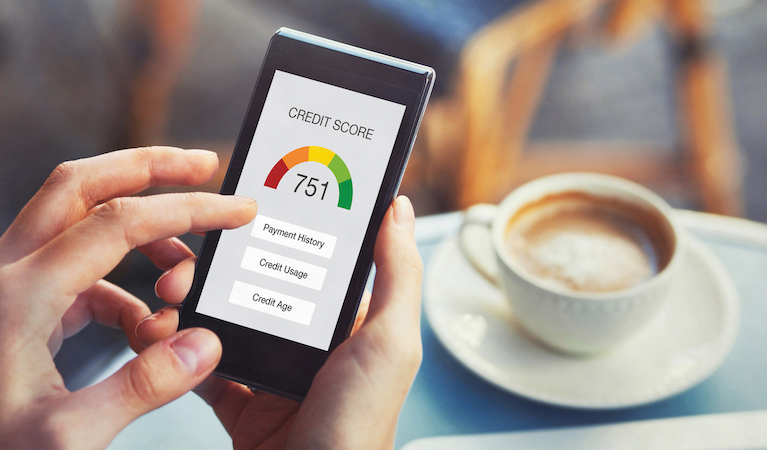Warning: Fraudsters are using our brand to target individuals. Loans 2 Go will never ask for upfront fees. If affected, please contact us & learn more here.
We use cookies to improve your experience on our websites and to analyse how and when our sites are used. By clicking 'Accept all & continue' you're agreeing to our use of cookies. To learn more about the cookies we use, you can read our cookie policy.
Opt out of non-essential cookiesWarning: Fraudsters are using our brand to target individuals. Loans 2 Go will never ask for upfront fees. If affected, please contact us & learn more here.

If you have experienced financial difficulties in your life, either recently or in the more distant past, this can have a negative effect on your credit score. And if you have a bad credit score, this could then prevent you from borrowing money, for example loans, credit cards or mortgages.
In this article we take a look at:
Your credit score is a 3-digit rating that gives an indication of how reliable you are when it comes to handling money. It is based on your financial history, including your track record of repaying money that you owe, for example present and past loans, credit cards and mortgages.
Your credit score is determined by the three main Credit Reporting Agencies (CRAs) in the UK: Experian, Transunion or Equifax. They each have slightly different numbering systems, but as a guide, the following numbers represent a very good credit score:
Experian: 881 or above (out of 999)
TransUnion: 604 or above (out of 710)
Equifax: 420 or above (out of 700)
It is important that you are aware of your current credit score, particularly if you are planning to take out any kind of finance arrangement such as a loan, credit card or mortgage. If you know your credit score in advance it means that there are no nasty surprises around the corner. And if you do identify problems with your credit score, there are things that you can do to improve it – which we will look at later in this article.
You can find out your credit score for free from the following links:
If you want to find out more details about the information on which your credit score is being based, you will also need to access your full credit report. To do this you may need to set up a subscription with one of the CRAs but you are usually able to get the first month free, which you can then cancel before the end of the month so that you do not have to pay.
If your credit score is not as good as you would want it to be, there are several things that you can do to start improving it. To do this it is worth getting hold of your full credit report so that you can check all the information on it, and work out why you have bad credit.
Once you have your full credit report, here’s what to do:
We hope that the above information is a useful start in recovering from a poor credit score and making a fresh financial start. And if you are trying to reorganise your current financial commitments, remember that Loans 2 Go offers loans for bad credit that may be able to help.
For more helpful financial and lifestyle tips, visit us here again soon at Loans 2 Go.











Loans 2 Go is a trading name of Loans 2 Go Limited, registered in England and Wales. Company number 4519020. ICO registration number Z720743X. Registered address: Bridge Studios, 34a Deodar Road, London SW15 2NN. Authorised and regulated by the Financial Conduct Authority (FRN 679836). *Payment by bank transfer once application approved, subject to our working hours of Monday to Friday: 8am to 8pm and Saturday 8am to 5pm. All loans are subject to eligibility & affordability criteria. Max APR 815.6%. Minimum repayment period 18 months. Maximum repayment period 24 months.
As a lender, we pay commissions to credit brokers or other intermediaries who introduce customers to us. The commission we pay varies depending on the broker, the product offered, and the terms agreed with the broker. This payment is made by us and does not affect the interest rate, terms, or total cost of your loan.
© 2024 Loans 2 Go. All rights reserved.